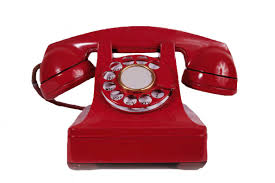Whether you are job hunting, going for a scholarship or internship, or even just applying for a volunteer position, good references complete your whole professional package. Your resume and your interview skills are foremost in your mind, but the things other people say about you can be just as crucial.
The best time to think about getting a reference is long before you need one. But don’t just have an idea of who to ask and who will say good things about you. There are some concrete steps to take to ensure your professionalism shines through to both your reference providers and to the people who will be calling them.
How do you go about getting all your references in order?
-
Make Sure You Ask Before You Give Out a Name
One of the biggest turn offs for a prospective employer is when they call a reference provider who is clearly unaware of being on the list. Neglecting to check with a previous employer or with a colleague to ask if they will act as a reference doesn’t necessarily mean they will say negative things about you or your job performance. They still might give a glowing report. On the other hand, no one likes to be caught off guard and unprepared. And your potential employer might assess this misstep as a lack of necessary forethought on your part at best and as a disregard of proper business practices at worst.
-
How Do You Ask?
Pick a few people you have either worked closely with for a professional reference or have known personally for several years for a character reference. But really think about who you ask, so they can speak to the qualities you want addressed. Especially for a character reference, don’t just choose a high school friend. Have you served with someone on a committee in your community? Are you a leader at a local special interest group or a club? Choose someone from one of those connections who can talk about your great leadership, reliability, or teamwork.
-
Thank Them
Make sure you follow up with anyone who provided a reference for you. They will want to know if you got the position you wanted and in which they played a part. And if you didn’t come away with a job offer, they still might have contacts or leads for other positions. They will appreciate that you recognized their efforts.
- WOC Nurses Week Highlights Specialty - April 16, 2024
- Honoring Radiology Nurses Day on April 12 - April 12, 2024
- Travel Offers New Career Possibilities - April 8, 2024



